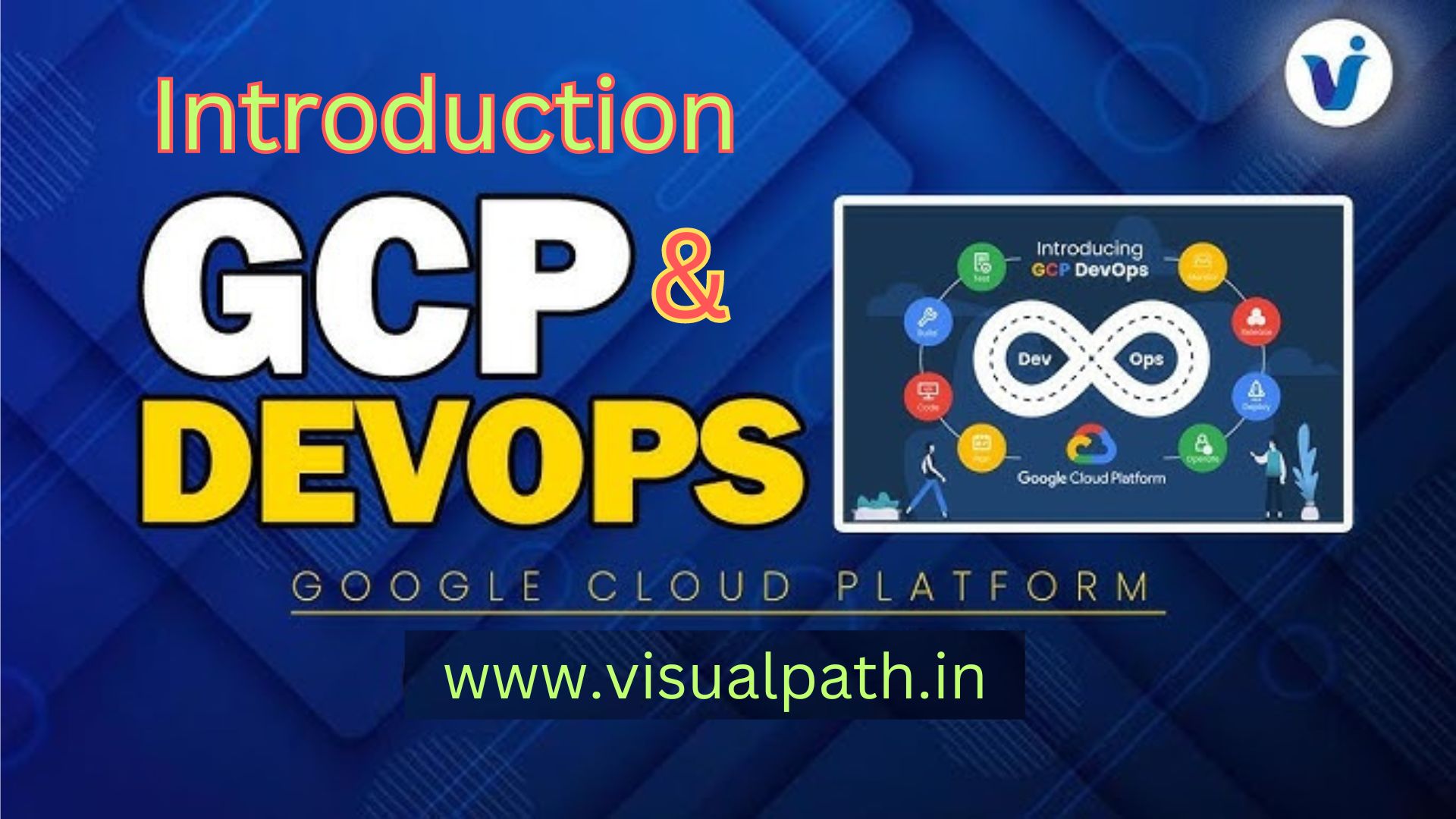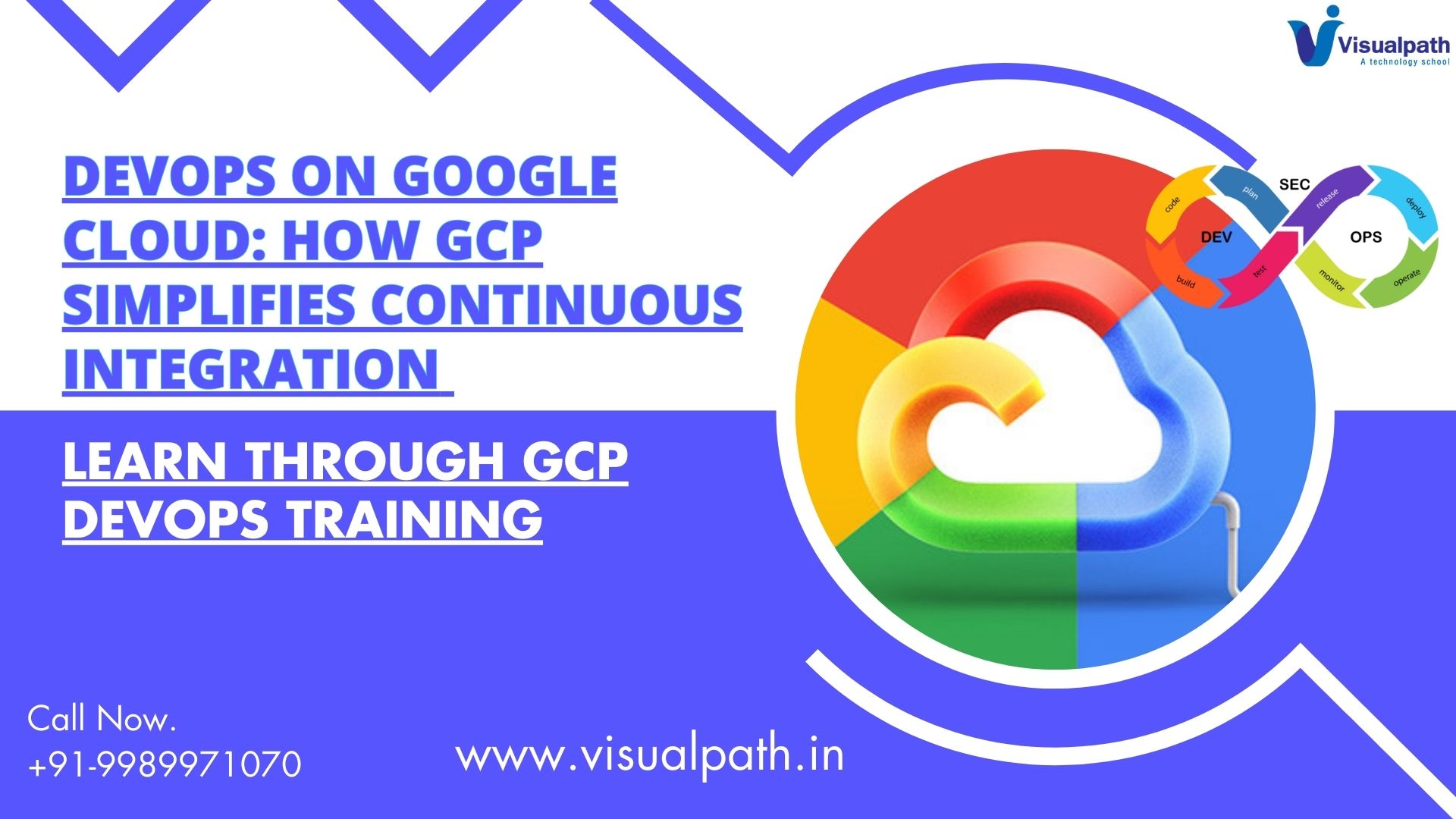Implementing efficient CI/CD Tools for GCP DevOps is crucial for modern software development teams aiming to achieve speed, scalability, and reliability. With a growing demand for automation in deployment workflows, professionals are increasingly turning to platforms like Google Cloud. If you’re looking to elevate your skills, enrolling in a GCP DevOps Certification Training program can help you gain the expertise needed to build and manage CI/CD pipelines effectively on GCP.
Tools for GCP DevOps
1. Cloud Build
Google Cloud Build is a native CI/CD service by GCP that lets you build, test, and deploy software quickly and at scale. With Cloud Build, you can execute builds in Docker containers, define custom workflows, and integrate seamlessly with other Google Cloud services like Cloud Source Repositories, Artifact Registry, and Google Kubernetes Engine (GKE).
Key Features:
- Serverless and fully managed
- Supports Docker natively
- Scalable and secure builds
- Flexible pipeline configuration using cloudbuild.yaml
2. Cloud Deploy
Cloud Deploy is GCP’s managed continuous delivery service that simplifies the deployment of applications to GKE, Cloud Run, and Anthos. It supports progressive delivery features like canary deployments and offers easy integration with Cloud Build for end-to-end CI/CD automation.
Key Features:
- Automated rollout strategies
- Built-in security and IAM integration
- Audit logging and release tracking
- Visualization of deployment progression
3. Jenkins on GCP
Jenkins is an open-source automation server widely used in CI/CD pipelines. When hosted on GCP Compute Engine or GKE, Jenkins becomes a powerful tool for orchestrating builds, tests, and deployments across hybrid and multi-cloud environments.
Key Features:
- Extensive plugin ecosystem
- Integration with GCP services
- Customizable pipelines using Groovy (Jenkinsfile)
- Support for distributed builds
4. GitHub Actions
GitHub Actions is gaining popularity as a CI/CD platform that integrates directly with GitHub repositories. It can deploy to GCP using service accounts and secrets, making it a solid option for teams already using GitHub for source control.
Key Features:
- Easy YAML-based workflows
- Free minutes for public repositories
- Built-in CI/CD templates
- Community-contributed GCP deployment actions
5. GitLab CI/CD
GitLab CI/CD provides an end-to-end DevOps platform with built-in CI/CD capabilities. When integrated with GCP, GitLab enables full control over build pipelines, Kubernetes deployments, and artifact storage.
Key Features:
- Unified platform for code and CI/CD
- Native support for Kubernetes
- Customizable runners on GCP
- Real-time pipeline monitoring
6. Spinnaker
Spinnaker, originally developed by Netflix and now supported by Google, is an open-source multi-cloud continuous delivery platform. It’s ideal for complex delivery strategies and large-scale production deployments on GCP.
Key Features:
- Advanced deployment strategies (blue/green, canary)
- Built-in monitoring and rollback
- Integration with GKE, App Engine, and more
- Strong community and Google support
Choosing the Right Tool for Your Pipeline
Whether you’re a student or a professional, choosing the right tool depends on your team’s needs. If you’re just starting, enrolling in a reliable GCP DevOps Training course will help you understand how these tools integrate with cloud services, and how to choose based on scalability, security, and project complexity.
For small to mid-sized teams, Cloud Build and Cloud Deploy offer simplicity and seamless GCP integration. Enterprises may prefer Jenkins or Spinnaker for complex workflows. Teams already using GitHub or GitLab will benefit from the tight coupling of source control and CI/CD in those platforms.
Conclusion
CI/CD pipelines are the backbone of modern DevOps, and GCP provides a rich suite of tools to build them efficiently. Whether you are looking for a fully managed solution like Cloud Build or a customizable option like Jenkins, there’s a tool tailored to your project’s needs. By adopting the right CI/CD tools, organizations can accelerate software delivery and ensure consistency. If you’re ready to dive deeper, our GCP DevOps Online Training Institute offers hands-on experience and real-world projects to help you build expertise and grow your cloud career.
Trending Courses: MLOps, DevOps, and Azure DevOps




